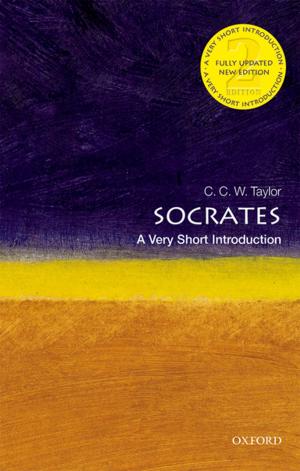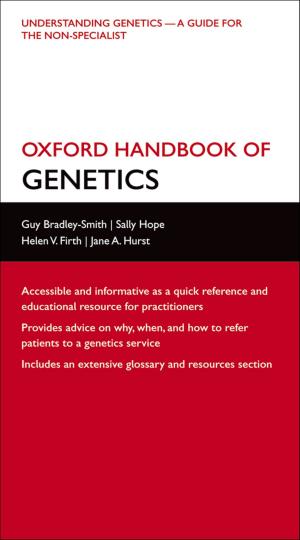| Author: | José Luis Bermúdez | ISBN: | 9780192516015 |
| Publisher: | OUP Oxford | Publication: | February 23, 2017 |
| Imprint: | OUP Oxford | Language: | English |
| Author: | José Luis Bermúdez |
| ISBN: | 9780192516015 |
| Publisher: | OUP Oxford |
| Publication: | February 23, 2017 |
| Imprint: | OUP Oxford |
| Language: | English |
No words in English are shorter than "I" and few, if any, play a more fundamental role in language and thought. In Understanding "I": Thought and Language José Luis Bermúdez continues his longstanding work on the self and self-consciousness. Bermúdez develops a model of how language-users understand sentences involving the first person pronoun "I". This model illuminates the unique psychological role that self-conscious thoughts (typically expressed using "I") play in action and thought - a unique role often summarized by describing "I" as an essential indexical. The book opens with an argument directly supporting the indispensability of "I"-thoughts in explaining action. After motivating a broadly Fregean approach linguistic understanding it critically examines Frege's own remarks on "I" as well as the Fregean account offered by Gareth Evans. The main part of the book develops an account of the sense of "I" that explains a cluster of related phenomena, including essential indexicality, immunity to error through misidentification, the shareability of "I"-thoughts, the relation between "I" and "you", and the role of autobiographical memory in self-consciousness.
No words in English are shorter than "I" and few, if any, play a more fundamental role in language and thought. In Understanding "I": Thought and Language José Luis Bermúdez continues his longstanding work on the self and self-consciousness. Bermúdez develops a model of how language-users understand sentences involving the first person pronoun "I". This model illuminates the unique psychological role that self-conscious thoughts (typically expressed using "I") play in action and thought - a unique role often summarized by describing "I" as an essential indexical. The book opens with an argument directly supporting the indispensability of "I"-thoughts in explaining action. After motivating a broadly Fregean approach linguistic understanding it critically examines Frege's own remarks on "I" as well as the Fregean account offered by Gareth Evans. The main part of the book develops an account of the sense of "I" that explains a cluster of related phenomena, including essential indexicality, immunity to error through misidentification, the shareability of "I"-thoughts, the relation between "I" and "you", and the role of autobiographical memory in self-consciousness.















